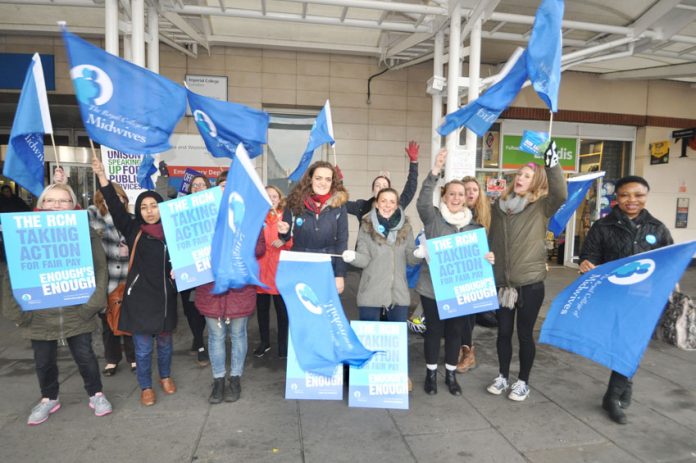
HEALTH unions responded angrily to figures released yesterday showing the worst NHS waiting times in decades.
This unprecedented crisis, the unions said, is a result of massive staff shortages, the closure of A&E’s up and down the country and the privatisation of the NHS.
NHS workers are simultaneously embroiled in an escalating dispute over pay, they walk out on strike across the country for 12th hours on Thursday 29th January between 9am and 9pm. This will be followed a 24-hour strike on Wednesday 25th February.
Eve Turner Secretary of Ealing Trades Council told News Line: ‘We have been campaigning against A&E closures in North West London for the last two years.
‘The A&E crisis has gone from bad to worse in North West London, we have one of the highest A&E waiting times and this is clearly a result of the closures of two of our A&E’s at Hammersmith and Central Middlesex hospitals in September.
‘They are also threatening the closure of Ealing and Charing Cross A&E’s as well which would certainly result in people dying.
‘At the same time the government is planning to close A&E’s all around the country and accelerate the privatisation which will lead to the deterioration of the NHS.’
Nurses union RCN said: ‘Patients and hardworking staff are being let down by a system in crisis.
‘Hospital trusts trying to recruit more staff have been hamstrung by the short-sighted cuts to nurse training places, which mean there simply aren’t enough nurses in the system.
‘This is made worse by chronic under resourcing of community services and social care, which means more people end up in A&E who could be better treated elsewhere.
‘The Government needs to stop burying its head in the sand and accept that there is a crisis in A&E, which is getting worse.
‘Nothing short of a long-term strategy, and a significant long-term investment in our health service will put an end to this crisis. Patients deserve no less.’
Dr Mark Porter, BMA council chair, said: ‘Patients should be treated on the basis of need, rather than arbitrary targets, but these figures show the NHS is under unprecedented levels of pressure.
‘Staff are working flat out but the system is struggling to cope with the sheer number of patients coming through the door.
‘Growing pressure on services throughout the year means hospitals have no spare capacity to deal with the winter spike in demand.’
Unison’s general secretary, Dave Prentis said: ‘The NHS is now on the brink of disaster. It is outrageous that vulnerable patients are not being seen within the recommended timescale.
‘The government must do everything it can to sort out all the underlying issues in the NHS – this includes the major dispute with trade unions over pay.
‘We are only weeks away from NHS staff walking out for 12 and 24 hours and this dispute will not go away unless the government engages in meaningful talks.’
GMB, the union for NHS and ambulance staff said: ‘From October to December 2014 92.6% of patients were seen in four hours.
‘The figures for major A&E departments are especially alarming, with only 88.9% of patients seen in four hours.
‘NHS A&E figures have deteriorated since the 2010 general election. In October to December 2009, 97.8% of patients were seen in four hours.’
Steve Rice, Chair of the Ambulance Committee said ‘I have worked for the Ambulance Service for almost four decades and in this time I have worked under 17 Secretaries of State for Health.
‘Over the last few years, time and time again warnings signs have been there that the service is at stretching point.’
GMB is consulting with ambulance staff on a 48 hour strike projected for the end of January.